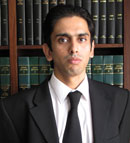
The Supreme Court of Pakistan – File Photo
A visiting delegation from the International Commission of Jurists criticised Pakistan’s Court for exercising suo motu excessively, stating that judicial interventions were seen by some as the court exercising “undue influence.” A representative for the Supreme Court rejected the claim as being based on faulty information, because the rules for suo motu are laid out in Article 184(3) of the Constitution and in case law. However, learned experts inside the country including Asma Jahangir, have asked the court to create a legal standard for the use of suo motu. Though suo motu has been used to remedy several of the nation’s major issues, its practice cannot continue until a legal standard is developed that takes into account all the potential negative aspects of its use.


